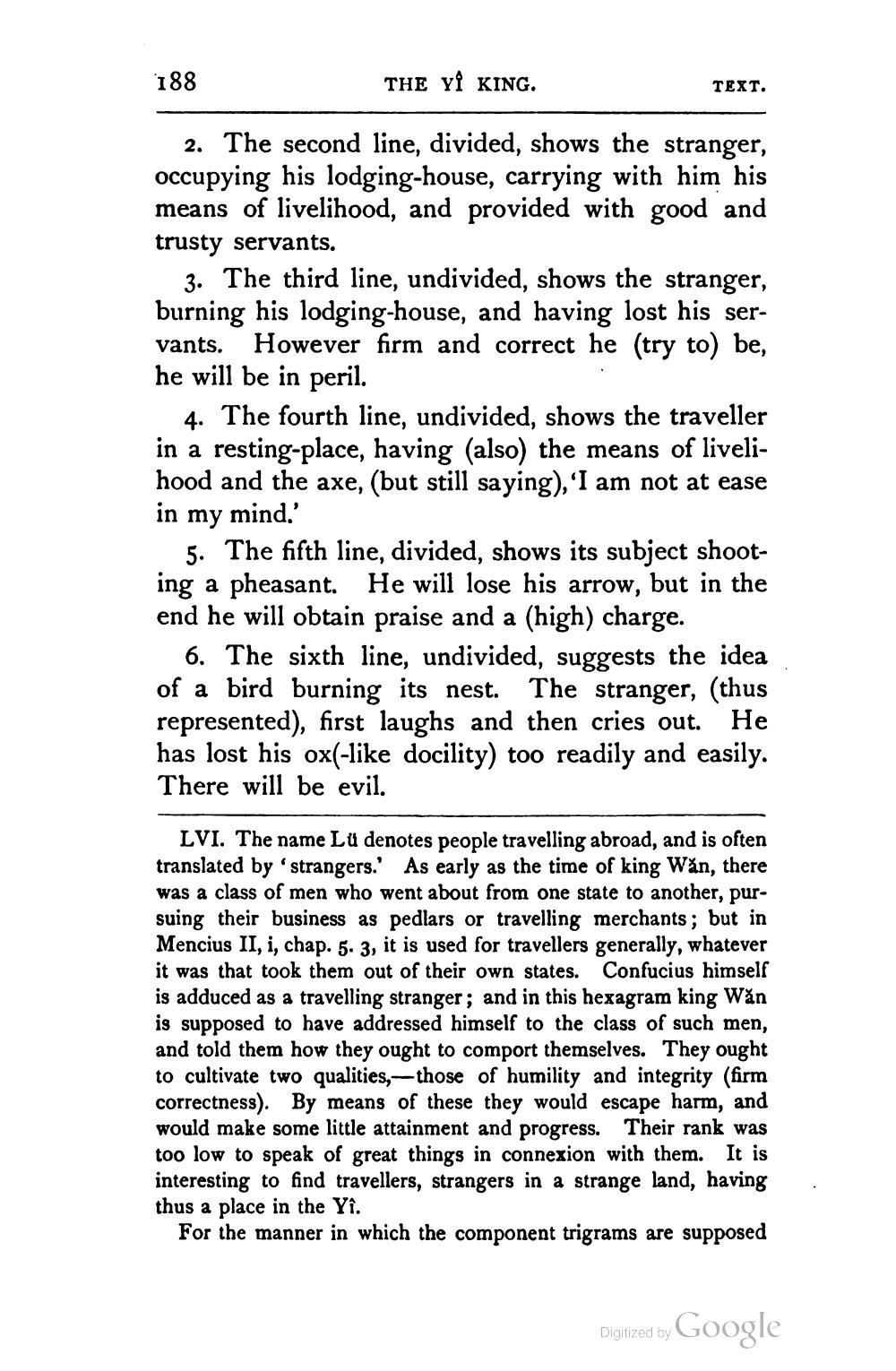________________
188
THE YÎ KING.
TEXT.
2. The second line, divided, shows the stranger, occupying his lodging-house, carrying with him his means of livelihood, and provided with good and trusty servants.
3. The third line, undivided, shows the stranger, burning his lodging-house, and having lost his servants. However firm and correct he (try to) be, he will be in peril.
4. The fourth line, undivided, shows the traveller in a resting-place, having (also) the means of livelihood and the axe, (but still saying), 'I am not at ease in my mind.'
5. The fifth line, divided, shows its subject shooting a pheasant. He will lose his arrow, but in the end he will obtain praise and a (high) charge.
6. The sixth line, undivided, suggests the idea of a bird burning its nest. The stranger, (thus represented), first laughs and then cries out. He has lost his ox(-like docility) too readily and easily. There will be evil.
LVI. The name Lu denotes people travelling abroad, and is often translated by strangers.' As early as the time was a class of men who went about from one state to another, pursuing their business as pedlars or travelling merchants; but in Mencius II, i, chap. 5. 3, it is used for travellers generally, whatever it was that took them out of their own states. Confucius himself is adduced as a travelling stranger; and in this hexagram king Wăn is supposed to have addressed himself to the class of such men, and told them how they ought to comport themselves. They ought to cultivate two qualities,—those of humility and integrity (firm correctness). By means of these they would escape harm, and would make some little attainment and progress. Their rank was too low to speak of great things in connexion with them. It is interesting to find travellers, strangers in a strange land, having thus a place in the Yi.
For the manner in which the component trigrams are supposed
Digitized by Google




